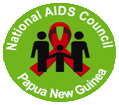Our Values:
These are the core values of the National AIDS Council Secretariat and form the DNA by which all decisions, actions and behavior will be guided.
Integrity
We uphold the highest standards of integrity in all of our actions.
We are committed to making sure that everyone we interact with are treated fairly and with transparency, dignity and respect.
Innovation
We are performance driven, therefore we continuously challenge the status quo and set ambitious targets and goals for change and excellence. We are prepared to take calculated risks with new tools and technology, as we believe that innovation is the power to our success, in reaching our people and impacting PNG for a better tomorrow.
Loyalty
We are good citizens in the communities in which we live and work. We value professionalism and genuinely care for all people. We are committed to making a positive difference in the lives of all we come in contact with. We pride ourselves on being honest, trustworthy and loyal at all times.
Teamwork
As a team, we strive to create a culture of warmth and belonging, where everyone is welcome. We value each other and support all efforts, working together, across boundaries to achieve results for the whole team.
Our Divisions
The National AIDS Council Secretariat (NACS) of Papua New Guinea is organized into several key divisions, each dedicated to specific aspects of the national response to HIV and AIDS. These divisions collaborate to implement comprehensive strategies aimed at prevention, control, and management of HIV/AIDS across the country.
Program Division
The Program Division of the PNG National AIDS Council plays a central role in coordinating and driving the national response to HIV and AIDS. It is composed of three key units, each with a distinct focus yet working collaboratively to achieve the overall objectives of prevention, treatment, care, and support.
- Monitoring & Evaluation (M&E)
This unit ensures accountability and evidence-based decision-making by systematically tracking progress, assessing the effectiveness of programs, and measuring impact. Through data collection, analysis, and reporting, M&E supports informed planning, policy development, and resource allocation. - Advocacy & Social Mobilisation
This unit leads efforts to raise awareness, reduce stigma and discrimination, and engage communities in the national HIV response. By partnering with civil society, faith-based organizations, youth groups, and media, the unit fosters inclusive dialogue and promotes behavioral change to prevent new infections. - Research
Focused on generating strategic knowledge, the Research unit conducts and supports studies to deepen understanding of HIV trends, risk factors, and the effectiveness of interventions. The findings guide policy formulation and program design, ensuring that responses are context-specific and grounded in scientific evidence.
Corporate Service
The Corporate Services Division of the PNG National AIDS Council Secretariat (NACS) plays a vital role in supporting the organization’s strategic and operational effectiveness. This division is responsible for delivering essential internal services that enable the smooth functioning of the Secretariat. It comprises four key sub-sections:
- Finance – Ensures sound financial management through budgeting, financial reporting, and compliance with public financial regulations, enabling efficient use of resources to support HIV/AIDS programs and initiatives.
- Procurement – Manages the acquisition of goods and services, ensuring transparent, cost-effective, and timely procurement processes that align with government procurement guidelines and organizational needs.
- Human Resources (HR) – Oversees staff recruitment, development, and welfare, fostering a competent and motivated workforce that upholds the values and mission of NACS.
- Information and Communications Technology (ICT) – Provides and maintains robust ICT infrastructure and support services, enabling effective information management, communication, and digital operations within the Secretariat.
Together, these sub-sections ensure that the NACS operates with integrity, efficiency, and accountability in delivering its mandate to coordinate the national response to HIV and AIDS in Papua New Guinea.
Executive
The Executive Division provides strategic leadership and overall governance of the Council’s work. It is responsible for high-level coordination, policy guidance, and stakeholder engagement across government, development partners, civil society, and communities. Key functions include:
- Policy and Strategic Oversight: Leading the development and implementation of national HIV/AIDS policies, frameworks, and plans.
- Stakeholder Coordination: Facilitating partnerships with government agencies, international organizations, donors, and community stakeholders to ensure a united response.
- Leadership and Representation: Representing the National AIDS Council at national, regional, and international platforms to advocate for support, share progress, and promote best practices.
- Resource Mobilization: Overseeing funding strategies and resource coordination to support sustainable HIV/AIDS interventions.
- Institutional Governance: Ensuring good governance, accountability, and adherence to national policies and standards within the Council Secretariat.
Background
In 1997, the Papua New Guinea Parliament enacted the National AIDS Council 1997 and Amendment Act2007 and it established the National AIDS Council. The National AIDS Council is responsible for coordinating and overseeing the implementation of HIV and AIDS programs (activities) in the country. The Council is a multi-sectoral body with diverse representative membership from sectoral agencies/organizations. As the governing body for coordinating the HIV response in the country, the Council convenes quarterly to provide leadership and strategic direction to the National AIDS Council Secretariat (NACS).


Who We Are
The Papua New Guinea Parliament through the passing of the National AIDS Council Act 1997 established the National AIDS Council. The National AIDS Council Secretariat (NACS) was established in 2000. NACS is mandated to facilitate the main coordination roles and functions of the National AIDS Council, as stipulated in the Act of 1997 and amended in 2007. The National AIDS Council Secretariat (NACS) implements various programs which includes Monitoring, Evaluation and Research, Advocacy and Social Mobilization and Policy and Planning.
